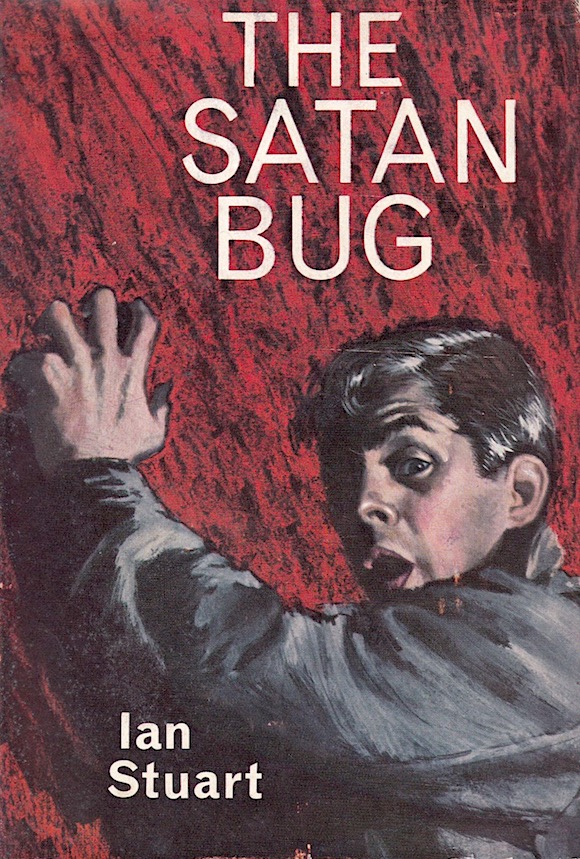
The Andromeda Strain
Book Description
A deadly extraterrestrial microorganism has crash-landed on Earth, bringing with it a terrifying threat that could obliterate humanity. As a team of scientists races against time in a high-tech lab, they must confront unforeseen challenges and inner demons while unraveling the mystery behind this lethal contagion. Paranoia spreads as isolation and fear seep into their minds, and survival hangs in the balance. With every tick of the clock, the stakes rise higher. Can they contain the outbreak before it devours us all, or will humanity face its most devastating foe yet? What happens when the enemy is beyond our imagination?
Quick Book Summary
"The Andromeda Strain" by Michael Crichton is a high-stakes science fiction thriller in which a mysterious extraterrestrial microorganism crash-lands near a small Arizona town. Almost all inhabitants are killed instantly, and a team of elite scientists is assembled under top-secret government protocols to investigate and contain the outbreak in a sophisticated underground laboratory, Wildfire. As time ticks away, the team must decipher the alien microbe's behavior, structure, and deadly adaptability while battling technological limitations, internal conflicts, and escalating fear. Paranoia and tension rise, pushing both the scientists and their equipment to their limits. As the microorganism mutates, the survival of humanity depends on their ingenuity and courage. Crichton masterfully blends science, suspense, and horror, delivering a cautionary tale about the unpredictability of nature and the dangers of scientific hubris.
Summary of Key Ideas
Table of Contents
Human Vulnerability to the Unknown
A military satellite crash in Piedmont, Arizona, releases an extraterrestrial microorganism with deadly consequences. Nearly every resident dies instantly under mysterious circumstances, triggering a top-secret government response. Project Wildfire, a contingency plan for potential biological threats from space, is initiated. Four top scientists—Dr. Jeremy Stone, Dr. Charles Burton, Dr. Peter Leavitt, and Dr. Mark Hall—are rapidly assembled and taken to a highly advanced underground lab designed to contain alien organisms. The initial investigation reveals strange anomalies, such as two survivors: a baby and an elderly man, who both escaped the microbe's effects, raising critical questions about its behavior and lethality.
The Ethics and Risk of Scientific Research
The Wildfire team conducts rigorous scientific analyses under immense time pressure, uncovering the microorganism's unique properties. Dubbed "Andromeda Strain," it reproduces and mutates rapidly, thriving on specific materials and killing by clotting human blood instantaneously. The scientists discover the microbe’s crystalline, non-carbon-based structure, which challenges established biological science. Meanwhile, they must decipher why the two Piedmont survivors lived, leading to experimental breakthroughs. But lab mishaps and the microbe’s unpredictability magnify risk, and as the organism begins eating through laboratory seals, the threat of global contamination becomes imminent.
Isolation and Paranoia under Pressure
Isolation and paranoia take hold within the team as technology and protocols prove imperfect. A series of malfunctions—compounded by stress and exhaustion—expose the all-too-human vulnerabilities of the scientists as paranoia spreads. As automatic laboratory defenses are triggered, including a nuclear self-destruct sequence, the team realizes that standard protocols could exacerbate the situation, since a nuclear explosion would only help the Andromeda Strain proliferate due to its resistance to radiation and capability to mutate into even more dangerous forms. Human error and the unpredictability of advanced systems nearly lead to disaster.
Technological Reliance and Its Limits
Ethical and existential dilemmas surface as the team confronts the implications of their research and the dangers of studying unstoppable pathogens. The limits of scientific knowledge and control become evident, emphasizing the tenuous balance between innovation and catastrophe. Dr. Hall’s observation about the survivors’ abnormal blood pH levels leads to an emergency response that prevents destruction and halts the organism’s spread. Ultimately, containment relies as much on luck and ingenuity as it does on expertise or technology, underscoring scientific hubris and the fragile security humans maintain over natural and extraterrestrial threats.
Adapting to Unpredictable Threats
With the crisis narrowly averted, the Andromeda organism mutates into a benign form and dissipates into the atmosphere. The scientists and authorities reflect on how close the planet came to devastation. “The Andromeda Strain” closes with a lingering warning about future encounters with the unknown, urging humility, vigilance, and ethical resolve amidst humanity’s relentless pursuit of knowledge and exploration. Crichton leaves readers contemplating both the relentless advances of science and the ever-present dangers lurking beyond human comprehension.
Download This Summary
Get a free PDF of this summary instantly — no email required.





